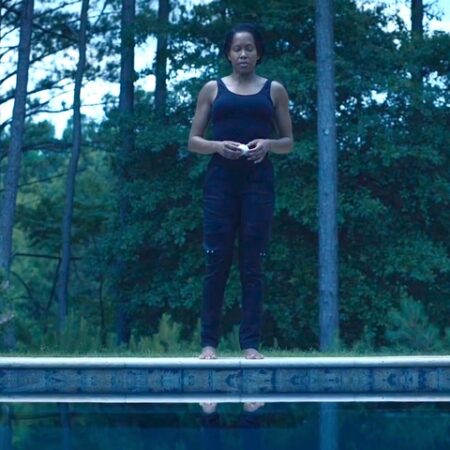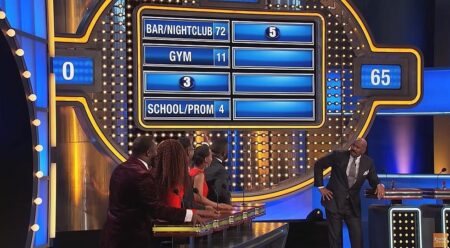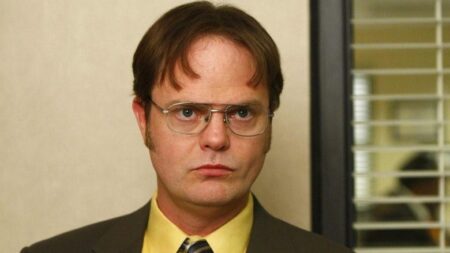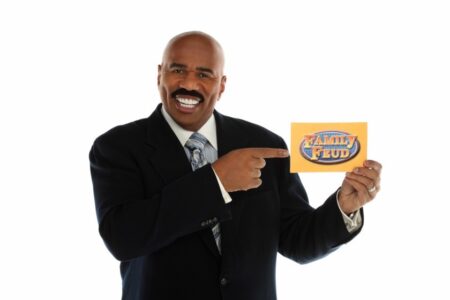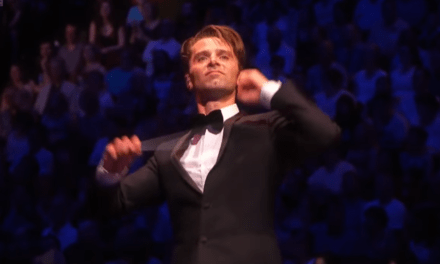So, about a year ago, I was watching that Breaking Bad film on Netflix and Watchmen on HBO, and I was still thinking about the Deadwood movie from the previous spring. Inasmuch as all three of those “shows” amounted to endings and beginnings (and still more endings), the SUP book that I co-edited with David Bianculli on Television Finales was, as a result, still very much on my mind. We seemed so preoccupied with the past, inasmuch as we were returning to it again and again in those movies and on that series. Maybe we were culturally mining those media objects to re-experience the thrill of past moments—like Rey climbing the wreckage of the Death Star in The Rise of Skywalker or Danny Torrance walking back into the Overlook in Doctor Sleep on the big screen. But, in returning to those locations and revisiting some of those characters (and meeting some new ones along the way), we were reinventing that past as a statement about the present and creating new endings that spoke to who or what we had become. (Although “Nostalgia” is literally a drug on Watchmen, exorcising the past may even lead to godhood for Angela Abar at the end of the series, as she literally considers walking on water.) But, of course, that was then, and this is now.
Slumped against my couch and burnt out from another day of e-mails, I stare vacantly at yet another hour of Family Feud and wonder why more people surveyed thought that “lump” was a better rhyme for “bump” than “jump” or how three people could name “chicken alfredo” as a kind of pasta. (Who takes these surveys? Where do they find these people?) Steve Harvey seems particularly happy in these episodes, I think. The families clap and dance together as the music plays, and why shouldn’t they? For them, there is no such thing as COVID, no outbreak spikes and second-wave anxieties, no debates about wearing masks or handwashing protocols, no election recounts, no polarized news for a polarized nation. And they could win a new car if they make it to Friday. While the twenty-thousand-dollar prize for the “fast money” round is a nice payday, it isn’t life-changing money, I grumble from my couch cushion, but the winners scream as if they will be getting lottery payouts. I move for the remote a few times, but I just don’t have the energy to leave this land where someone thinks that “José” starts with an “H” and no one seems to care. I wonder if I am drooling. These are my television habits on a weeknight at home. This is my brain during the pandemic, and this is the past that I now turn to—not reinvented, but reclining.
If I think about what I’ve been watching as of late, it’s not pretty. Oh no. I have burned more hours than I can count watching Beat Bobby Flay or Chopped, watching people scramble to cook under pressure, watching judges savor some slightly underdone pork loin and show no fear if a chef sweats a tad on their bread pudding. A cough during the dessert round is no cause for alarm, and Bobby Flay is more than willing to hug a competitor after an intense thirty minutes of empanadas. On Diners, Drive-Ins, and Dives, Guy Fieri cruises into town in his cherry-red Camaro with the top down, to that world where patrons sit shoulder to shoulder to eat a world-famous hamburger or sample an obscenely decadent bowl of lobster mac and cheese. Of course, Guy gets to plunge a fork into the beef stew in the kitchen and smirks mischievously while the juice from that steak runs down his cheek. It’s all okay in the near-recent past, in the nightly time machine that shows me sugar-plum visions of pre-COVID glee. The drama here comes by the quart or the pound and often with a side of barbecue sauce. Nostalgia has become my drug of choice, too. I am a watchman. And I am watching.
At times, I feel horribly guilty, especially since there’s so much quality TV out there, older things to binge and newer things to start. But, in the midst of it all, yet another episode of The Office is comfort food, some predictability that goes down like Oysters Rockefeller in the Chopped kitchen or a steaming bowl of chicken soup at one of Guy’s out-of-the-way Triple D joints. (Am I watching too many cooking shows, I wonder, as food metaphors find their way into my vocabulary with alarming frequency? And am I watching too much of The Office? Hard to say. As far as the second one goes, though, my daughter dressed up as Dwight Schrute this year for Halloween.) And why shouldn’t I indulge in yet another half-hour of Impractical Jokers, if only to sit through Sal shouting “Bingo” in a crowded ballroom with none of the numbers on his card? No matter how many times I see it, the serious players are never amused. And no masks come out when Q gets handcuffed to a mime or Joe wears a diaper to square off against a sumo wrestler. Although the bits are frequently cringe-worthy, no one dies of embarrassment; no one dies of anything.
While I wait for civilization to reboot, I continue to tell myself that this experience is unprecedented and that I’m in some kind of cultural hibernation, living on TV predictability in the midst of a world that refuses to be second-guessed. A few years back, I wrote a CSTonline piece about reruns and how they satisfied our psychological craving for order, a necessary “counter” to the “chaos, flux, and unpredictability” of life. Maybe there are times when we need formula and control and security, things that TV often offers too much of. Maybe that’s the point of the exercise (or lack of exercise)—the familiarity, the safety, the predictability. I know that Pam won’t be marrying Roy and Jim won’t be working in Stamford forever. Maybe The Masked Singer is about all the intrigue and mystery that I can handle right now, as so many things remain up in the air. During a recent panel discussion at work, I talked about the need for some mindlessness during the pandemic, some moments of shutdown, a chance for the laptop to cool down and the user to recharge. As Steve Harvey smiles at yet another ridiculous response, I know that he gets it. So, why fight it? Maybe the answer that I’m looking for is somewhere on the board behind those numbers or hidden in a survey question about goldfish or vampires.
Douglas L. Howard is academic chair of the English Department on the Ammerman Campus at Suffolk County Community College. He is the co-editor of Television Finales: From Howdy Doody to Girls published by the Syracuse University Press, co-editor of The Essential Sopranos Reader and editor of Dexter: Investigating Cutting Edge Television.


